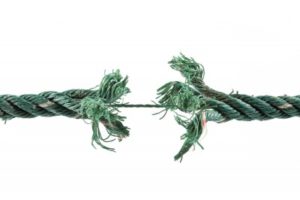If you qualify for a Chapter 7 bankruptcy, you may be able to totally wipe out unsecured debt, such as credit cards, personal loans, and medical bills. No one wants to file bankruptcy, but sometimes filing bankruptcy is the best way to calm the troubled waters and establish financial stability. Even if you do not qualify for Chapter 7 bankruptcy, a Chapter 13 bankruptcy (debt reorganization) may help you pay off credit card debt by forcing your creditors to permit repayment of only a portion (sometimes none) of your debt with no interest, late charges or penalties over five years.
 Credit card debt relief may be available through Chapter 7 bankruptcy. You do have to qualify to file Chapter 7 bankruptcy. If you do not qualify for Chapter 7 bankruptcy or have other issues stopping you from filing Chapter 7 bankruptcy, a Chapter 13 bankruptcy can help. In a Chapter 13 bankruptcy (depending on your income and assets), you may be required to repay some or all of the debt.
Credit card debt relief may be available through Chapter 7 bankruptcy. You do have to qualify to file Chapter 7 bankruptcy. If you do not qualify for Chapter 7 bankruptcy or have other issues stopping you from filing Chapter 7 bankruptcy, a Chapter 13 bankruptcy can help. In a Chapter 13 bankruptcy (depending on your income and assets), you may be required to repay some or all of the debt.
Pre-Bankruptcy Planning for Credit Card Debt Relief
Pre-bankruptcy planning is essential. Making changes on credit cards before filing bankruptcy can cause issues. Recent credit card charges can result in you having to repay the charges and, in some situations, can keep you from being able to obtain a discharge.
Think twice about refinancing your home to pay off credit card debt. This would be putting the roof over your head at risk. If you can’t pay your credit cards, you may be harassed and sued, but you will usually still have a place to live. In Texas, even if you get a judgment against your home, as long as your home is exempt under the homestead laws, a creditor cannot take your home to pay the judgment (while you are living). There are other adverse consequences, of course, to having a judgment against your home. But you are not in danger of actually losing your home.
If you are sued or have a judgment against you or think you may be sued, consult a bankruptcy attorney who can help you consider your options.